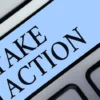
Canada Day weekend was exactly what I needed.
We spent a few days up north in Muskoka, right on the lake.
No better way to take in the beauty this country has to offer — and no better way to shut down, relax, and recharge.
I’ll admit: I’m not great at relaxing.
But after a few days of hiking, fishing, boating, eating well, and catching those incredible sunsets, even I forgot about everything going on back home.
It reminded me how lucky we are to call Canada home.
Yes, it’s easy to dwell on what’s not working in this country.
But weekends like this are a reminder of what is still working — and why this is still one of the most desirable places in the world to live.
And yet — as I sat on that dock, I couldn’t help but notice something else.
The price of these vacation homes.
Many of the lakefront properties up there?
They’re not first homes.
They’re second, third — maybe even fourth homes.
It really struck me: this is what ownership privilege looks like.
And it’s not just about wealth.
It’s about how the system supports and multiplies it — once you’re in.
Over the past couple of weeks, I’ve been writing a short series based on a report called The Great Sell-Off.
It breaks down how housing in Canada has evolved — from shelter to financial strategy — and how the system rewards those who already own.
This week, I want to touch on a piece that doesn’t get nearly enough attention: tax policy.
Because in this country, the tax code doesn’t just support housing.
It quietly supercharges the rewards of owning it.
Let’s start with something most Canadians know:
If you own your home — and it’s your principal residence — any gains when you sell are completely tax free.
That’s huge.
A $300K or $500K profit from your house?
You keep every dollar.
Compare that to your salary or business income, which gets taxed aggressively every step of the way.
Now let’s look at real estate investors.
If you own rental property, you’re eligible for a range of powerful tools — from refinancing tax-free to depreciation write-offs, also known as Capital Cost Allowance (CCA).
CCA lets you deduct a portion of your property’s value over time, reducing your taxable income — even while the actual property may be appreciating.
And if you refinance a property, you can extract equity without triggering tax at all.
In short:
The more you own, the more the system helps you grow.
This is one reason why ownership gaps turn into wealth gaps.
It’s not just market timing.
It’s structural.
To be clear — I’m not neutral on this.
If you’ve been reading me for a while, you know I’m one of the biggest advocates for real estate ownership, especially single-family homes.
Not just for appreciation or leverage…
But for stability, functionality, and long-term freedom.
And I believe this system, while imperfect, still presents a real opportunity — especially for those who understand how it works.
So if you’re not yet an owner — don’t get discouraged.
Understand the rules.
Study the incentives.
And make a plan to move toward ownership — even if it feels far off today.
Because the moment you cross that line, the game changes.
Not just because of what you own…
But because of what ownership unlocks.
Until next week,
Vince
P.S. If you’re already an owner, this is your reminder: use your position wisely.
Whether it’s equity planning, tax optimization, or building for the next generation — you have options.
P.P.S. If you’re not there yet, don’t give up. Ownership is still the most powerful lever in this system — and it’s never too late to make your first move.








